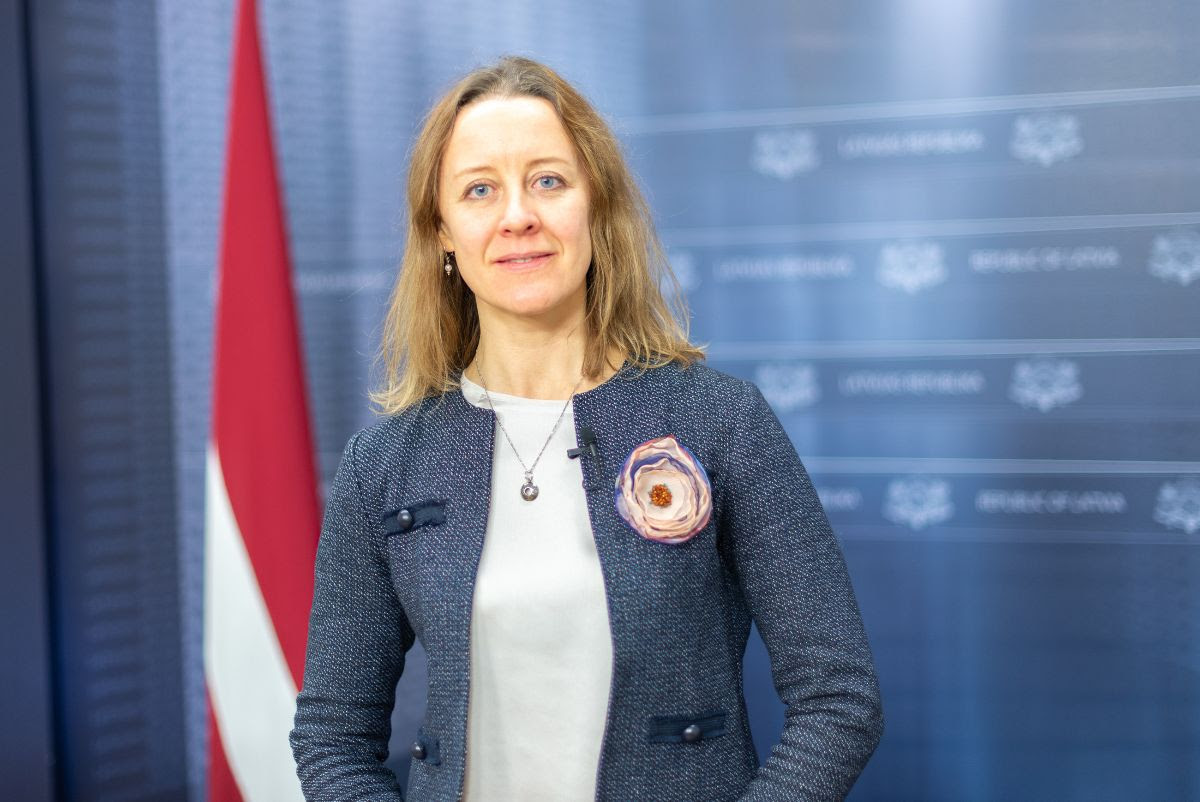Faces of Open Government – Inese Kušķe
Rostros del gobierno abierto - Inese Kušķe
Protecting Whistleblowers in Latvia
Inese Kušķe, Public Administration Policy Department, the State Chancellery of the Republic of Latvia, is responsible for elaboration of the Whistleblowing Law adopted by the Parliament on 11 October 2018. Inese Kušķe is a consultant for the Department For Public Administration Policy at the State Chancellery of the Republic of Latvia
Latvia recently passed a law ensuring whistleblower protection nationwide, a big victory for open government. How was the process to achieve this law and what was your role in the process?
Work on this law started several years ago. An initial study was done in 2012 by TransparencyAccording to OGP’s Articles of Governance, transparency occurs when “government-held information (including on activities and decisions) is open, comprehensive, timely, freely available to the pub... More International Latvia. One of its conclusions was that Latvia needed a special legal regulationGovernment reformers are developing regulations that enshrine values of transparency, participation, and accountability in government practices. Technical specifications: Act of creating or reforming ... that would define a whistleblower and would be used as a law that would complement existing, general legal norms. In 2014, Transparency International Latvia called on the then Prime Minister of Latvia to establish a working group to create a legal regulation to protect whistleblowers.
We convened a working group, led by the State Chancellery,which I represented, that included the Prosecutor General’s Office, the Supreme Court, the Ministries of JusticeTo address barriers that prevent citizens from having their justice needs met, OGP participating governments are working to expand transparency, accountability, and inclusion into all systems of justi..., Labour, and Interior, the Corruption Prevention and Combating Bureau, Transparency International Latvia, and the Free Trade Union Confederation of Latvia. The first draft law was adopted by the Cabinet of Ministers in March 2017 and sent to the Parliament.
Later in 2017, we organized an international conference on whistleblower protection with the Parliament where we discussed experiences from France, Ireland, Netherlands, and the United States. Key players in Latvia – the state institutions, academia, business sector, NGOs – also discussed how to improve whistleblower protection in the country. The Parliament then established a working group where I participated. We elaborated an alternative draft law in early 2018 and the Whistleblowing Law was finally adopted by the Parliament on 11 October 2018.
It was quite a big victory and achievement for our country. For the first time, this law defines what a whistleblower is, the main whistleblowing channels and protection guarantees in case of a reprisal. The law also creates a Contact Point for Whistleblowers and a dedicated website. The law goes into effect on May 1, 2019 giving us time to prepare for its implementation.
Why is adopting a Whistleblower’s Protection law important for the country?
The previous regulation was not sufficient. The dominant perception amongst citizens was that it did not make much sense to report corruption. As a result, we saw only a few examples of people coming forward to report abuses. With the new law, reporting, handling of the reports made, and whistleblower protection guarantees are all linked together in one special mechanism. This law -for the first time in our country- shows that reporting a violation with honesty and sense of fairness is the right behavior and that should the person reporting encounter any problems, they will get protection guarantees. The law is an important contribution to a democratic, open and participatory culture. It is also a way to say we can achieve safety and justice in our country if we all take it as a shared responsibility.
What can we do to ensure whistleblowers are protected worldwide?
Setting the legal grounds to protect whistleblowers is only the first step. It is imperative to effectively implement whistleblower protection laws that include safe reporting channels to protect the identity of whistleblowers. If it is done properly, it prevents reprisal. Governments should also ensure that competent authorities receive proper resources and training to ensure they handle whistleblower reports professionally and with care.
It is vital to raise awareness in societies across the world and among competent institutions in different branches of power. Whistleblowers should be treated with respect at their workplace (or business sector) and in society, not as outsiders or traitors. If whistleblowers helped prevent harm against the public interest – for example, reporting a problem with children’s food or safety, preventing environmental pollution, or reporting on a possible case of corruption – we should honor that, because they did not do that for their own interest.
Each case will be different and not all whistleblowers are experts or lawyers, but they can attest serious violations as insiders in their workplace. It is important to create such whistleblowing mechanisms that provide advice and assistance to persons willing to come forward to report abuses.
 |
Protecting Whistleblowers in Latvia
Inese Kušķe, Departamento de Administración Pública, Cancillería de la República de Letonia, responsable de la elaboración de la ley de denunciantes aprobada por el parlamento el 11 de octubre de 2018. Inese Kušķe es consultora del Departamento de Políticas de Administración Pública de la Cancillería Estatal de la República de Letonia.
Recientemente, Letonia aprobó una ley para asegurar la protección de denunciantes a nivel nacional, lo cual representa un gran logro para el gobierno abierto. ¿Cómo fue el proceso que llevó a aprobar esta ley y qué papel tuviste en todo el proceso?
El trabajo para aprobar esta ley empezó hace varios años. El primer estudio lo llevó a cabo Transparencia Internacional Letonia en 2012. Una de las conclusiones fue que Letonia requería de una regulación especial para definir a denunciantes para ser utilizado como ley para complementar leyes generales existentes. En 2014, Transparencia Internacional Letonia hizo un llamado al primer ministro de Letonia a establecer un grupo de trabajo para crear una ley para proteger a los denunciantes.
Establecimos un grupo de trabajo, liderado por la Cancillería, a la cual yo representaba, en el que participaba la oficina del fiscal general, la Suprema Corte, los Ministerios de Justicia, Trabajo e Interior, la Oficina de Prevención y Combate a la Corrupción, Transparencia Internacional Letonia y la Confederación de Mercado Libre de Letonia. El primer borrador fue adoptado por el Gabinete de Ministros y enviado al parlamento en marzo de 2017.
Más adelante en 2017, organizamos un evento internacional sobre protección de denunciantes con el parlamento en el que discutimos experiencias de Francia, Irlanda, los Países Bajos y Estados Unidos. En el evento, actores clave de Letonia, incluyendo instituciones estatales, academia, sector privado y organizaciones de la sociedad civil discutieron mecanismos para mejorar la protección de denunciantes. Más adelante, el parlamento estableció un grupo de trabajo en el que participé. A principios de 2018, preparamos un borrador alternativo de ley y la ley de denunciantes fue finalmente aprobada por el parlamento el 11 de octubre de 2018.
Fue un gran logro para nuestro país. Por primera vez, esta ley define lo que es un denunciante, identifica canales para denunciar y garantías de protección en caso de represalias. Además, la ley establece un punto de contacto para denunciantes y un sitio web específicamente para ese fin. La ley entrará en vigor a partir del 1 de mayo de 2019, lo cual nos da tiempo para prepararnos para la implementación.
¿Por qué es tan importante para el país la adopción de una ley de protección de denunciantes?
La regulación anterior no era suficiente. La percepción generalizada entre los ciudadanos era que no tenía mucho sentido reportar los casos de corrupción, por lo que había muy pocos reportes. Con la nueva ley, el reporte, manejo de reportes y las garantías de protección de los denunciantes están integrados en un solo mecanismo. Por primera vez en el país, la ley demuestra que el reportar violaciones con honestidad y justicia es lo correcto y que en caso de encontrar problemas, la persona que denuncia tendrá garantía de protección. La ley es una contribución importante a la cultura de la democracia, apertura y participación. Además es una forma de demostrar que podemos lograr la seguridad y justicia en nuestro país si lo consideramos una responsabilidad conjunta.
¿Qué podemos hacer para asegurar la protección de denunciantes en todo el mundo?
Establecer un marco legal para proteger a los denunciantes es solo el primer paso. Es fundamental implementar de manera efectiva leyes de protección a denunciantes que incluyan canales de reporte para proteger la identidad de los denunciantes para evitar posibles represalias. Además, los gobiernos deben asegurar que las autoridades competentes reciban los recursos y la capacitación adecuada para asegurar que manejen los reportes de protección de denunciantes con profesionalismo y cuidado.
Es fundamental sensibilizar a las sociedades de todo el mundo y a las instituciones competentes en los diferentes poderes del estado. Los denunciantes deben ser tratados con respeto en su trabajo (y sector) y en la sociedad, no como intrusos o traidores. Si los denunciantes ayudan a prevenir daños al interés público – por ejemplo, reportar problemas sobre los alimentos de los niños, prevenir casos de contaminación o reportar posibles casos de corrupción – debemos honrarlo porque no lo hacen por su propio bien.
Cada caso será diferente y es importante reconocer que no todos los denunciantes son expertos o abogados, pero pueden ser testigos de violaciones a la ley. Es importante crear mecanismos de denuncia que ofrezcan asesoría y asistencia a las personas que están dispuestas a reportar abusos.


Leave a Reply